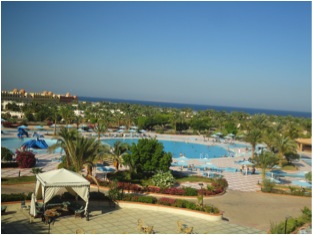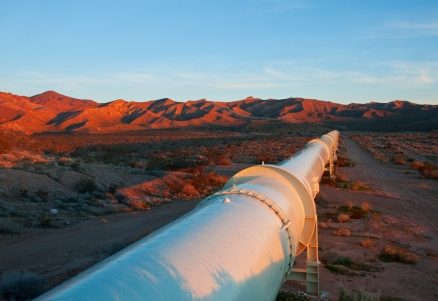
(AFP Photo)
Armed Forces Engineering Corps Head, General Kamel El-Wazir, announced that the dry digging of the new Suez Canal project will be concluded on 9 April, state-owned news agency MENA reported Monday.
Approximately 94.8% of dry digging works have taken place over seven and a half months, with 215m cubic metres having been dug, the armed forces announced in a statement issued Friday.
Around 20,000 workers and 80 companies are participating in the project, the armed forces added.
The new Suez Canal project was launched in August 2014 by President Abdel Fattah Al-Sisi, referring to it as a national project. It is expected that a new 72km-long canal will be dug alongside the original, to be implemented over a year.
Al-Sisi had called on the army’s engineering corps, who will directly supervise the project, to conclude the project in one year. This would replace the previously scheduled three–year timeline, attributing the shortened time period to the “the deteriorating security”, which could threaten the project.
The new canal will be established to increase the Suez Canal’s capacity to 97 passing ships per day, up from the current rate of 49 per day. The project would involve 35kms of dry digging and 37kms of “expansion and deep” digging.
Upon completion, the project would see canal revenues increase by 259%, up from current annual revenues of $5bn, according to Suez Canal Authority Chairman Mohab Memish.
The government had refused foreign participation in funding the project, with Al-Sisi stressing that only national banks, companies and investors can finance it. In September 2014, Al-Sisi approved the Suez Canal investment certificate law on 1 September to access the needed funds for the project.
Central Bank of Egypt (CBE) Governor Hisham Ramez announced in September that EGP 60bn had been collected.
The government had allocated in September part of the budget revenues in a CBE account to secure necessary financial resources. The money will be used to repay the value of the Suez Canal investment certificates over the next five years, according to Minister of Finance Hany Kadry Dimian.
The minister explained that the move came to negate pressure on the general budget and the Suez Canal Authority after five years, when the government will repay the certificates’ values.
The 6m tax-exempted investment certificates were provided by the National Bank of Egypt, Banque Misr, Banque du Caire, and the Suez Canal Bank. They were issued at the values of EGP 10, EGP 100, and EGP 1,000 with a five year maturity and a 12% interest rate.


